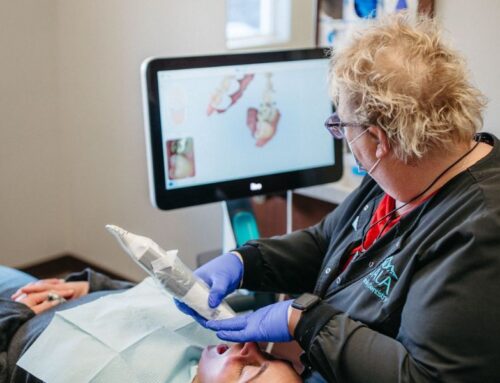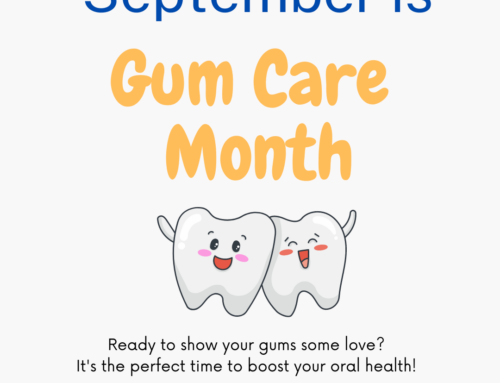
At Sala Family Dentistry, educating you on oral health is our main priority. Our mouths are a breeding ground for bacteria, both good and bad. Some of the most common dental problems can be prevented. It takes brushing twice a day, flossing daily, eating a healthy diet, and regular dental check-ups. It also helps to be educated on the most common dental problems and ways to try and prevent common problems. We have identified some of the most common problems and solutions to help:
Bad Breath
- Poor oral hygiene: If you do not have good oral care, food particles remain in and on your teeth. This results in odor-causing bacteria in the mouth.
- Dry mouth: Saliva keeps the soft tissues of your mouth moist and washes food particles and bacteria from the surfaces of your teeth. A lack of saliva prevents your mouth’s ability to remove excess food particles. These particles can cause bad breath.
- Tobacco: Smoking cigarettes or using tobacco products leaves a bad smell in your mouth. These can also cause dry mouth.
- White tongue: Certain conditions like sinusitis or a postnasal drip can leave a film on the tongue that causes bad breath.
Tooth Decay
Tooth decay occurs from eating sugary and starchy foods and not having a good oral health care routine. If your teeth are not brushed and flossed daily, bacteria create a layer of plaque that builds up on your tooth and around your gums. These bacteria feed on the sugars and starches in the foods you eat to release acids that erode your tooth enamel.
This is why daily brushing and flossing are paramount in preventing tooth decay. So long as these bacteria are removed daily and you’re getting your teeth professionally cleaned at least twice a year, chances are you won’t develop tooth decay.
Gum Disease
Bacteria in the mouth infect tissue surrounding our teeth, causing inflammation and redness around the tooth leading to periodontal (gum) disease. When bacteria stay on the teeth long enough, they form a film called plaque biofilm, which eventually hardens to tartar (calculus). Calculus then spreads below the gum line and out of reach for you to properly clean at home. At this point, only a dental professional can remove the calculus and treat the periodontal disease.
Here are just a few risk factors of periodontal disease.
- Smoking
- Diabetes
- Poor oral hygiene
- Stress
- Heredity
- Crooked teeth
Mouth Sores
Canker sores also called aphthous ulcers, are small, painful sores that appear inside the mouth on the lips, cheeks, on the gums, and tongue.
There are no known causes of canker sores, but we know they’re not contagious and can’t be spread through saliva. They can be the result of an injury, like when you accidentally bite your cheek or when braces catch or rub against the inside of the cheeks or back of the lips, but most of the time they appear seemingly out of nowhere.
Here are just a few known “triggers” of cold sores:
- Stress
- Hormonal shifts (menstrual cycles)
- Sensitivity to chocolate, nuts, cheese, or spicy or acidic foods
Tooth Erosion
Dental erosion is the gradual loss of the outer surface of your teeth due to acids from the foods you eat and drink. These acids can also soften the tooth surface, making it easier for them to be worn away by abrasion or tooth grinding. Stomach acids can also cause dental erosion.
The stomach contains many strong acids that can cause damage to the teeth. Vomiting and reflux cause these stomach acids to enter your mouth.
Here are just a few examples of health conditions that cause stomach acids to enter our mouths:
- Bulimia
- Morning Sickness
- Acid Reflux
- Eating acidic foods for prolonged periods of time
Tooth Sensitivity
- Worn tooth enamel from using a hard toothbrush and brushing aggressively
- Tooth erosion due to highly acidic foods and beverages
- Tooth decay, worn, leaky fillings, and broken teeth that expose the dentin of your tooth
- Gum recession that leaves your root surface exposed
Toothaches
Not all toothaches mean that you have a cavity and not all cavities cause a toothache. Confused? It can be a little counterintuitive, but we’re here to help!
- Tooth Sensitivity
If you experience sharp pains when eating or drinking foods and liquids with extreme temperatures, for example, it could mean you have a cavity. But it may also be a sign that you have sensitive teeth. Tooth sensitivity occurs when the inner layer of your tooth, known as dentin, becomes exposed. This type of toothache occurs even when there’s no cavity to find. Dentin usually becomes exposed when there’s a wearing away of enamel or gum recession. Exposure can occur because of over-brushing, trauma, or gum disease.
Some toothaches are more severe than others. If you have sharp tooth pain when you bite down, for example, the cause could be a cracked tooth. If you have throbbing pain that is constant, you may have an infection. You should see us right away if you think you might have an infected tooth. This is because if your tooth has an infection it has the potential to spread to the rest of your body.
Overall, some of these most common dental problems can be avoided or lessened if you maintain optimal oral health. Make sure to:
- Brush your teeth twice a day
- Floss daily
- Schedule regular dental checkups
- Don’t smoke
Need to make a dental visit? We would be happy to take care of you at Sala Family Dentistry.
Contact
Phone | (775) 376-7914
Email | info@salafamilydentistry.com
Hours
| Mon - Fri | 7:00am – 5:00pm |
| Saturday | 7:00am - 3:00pm |
| Sunday | Closed |
Location





